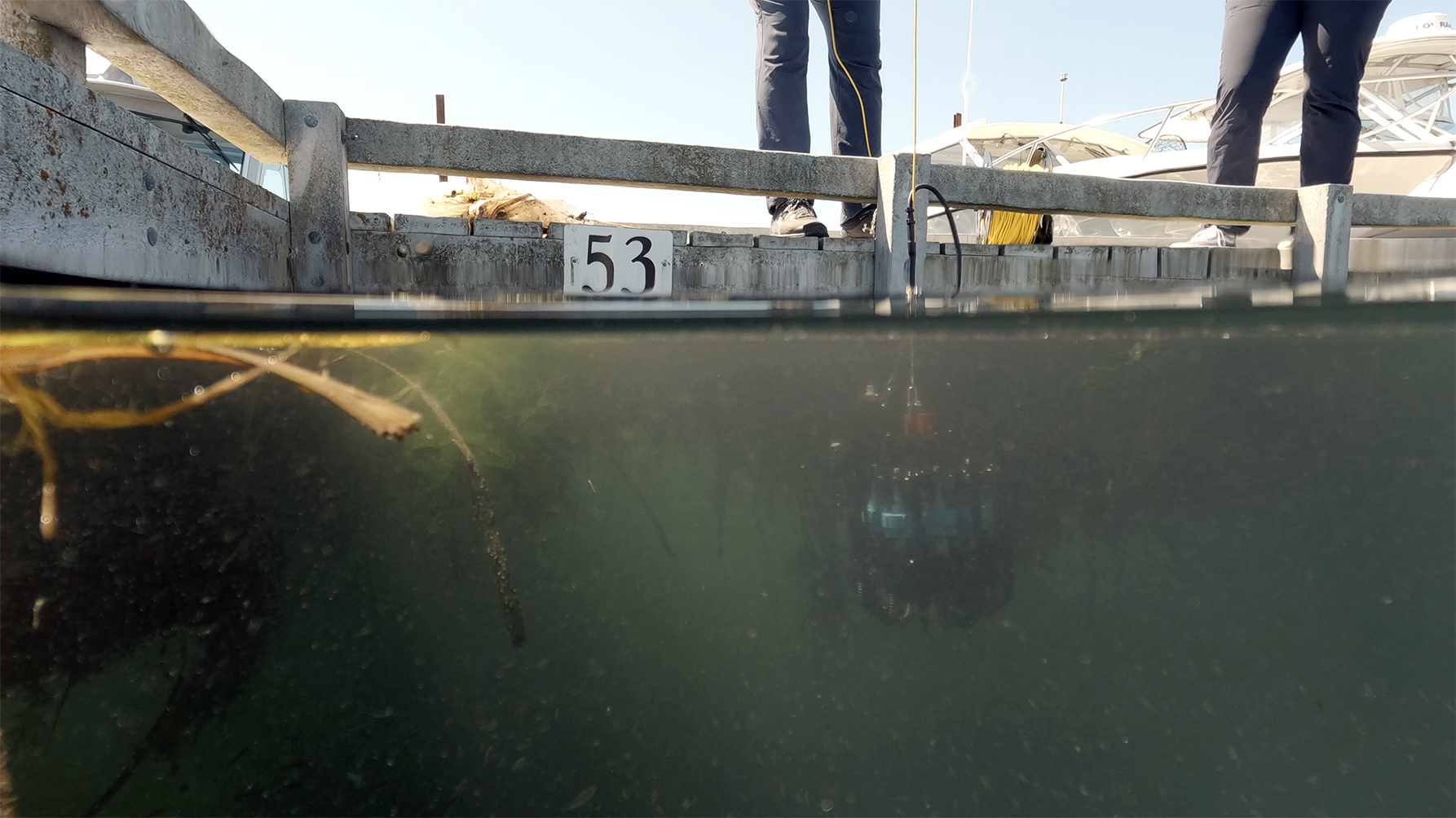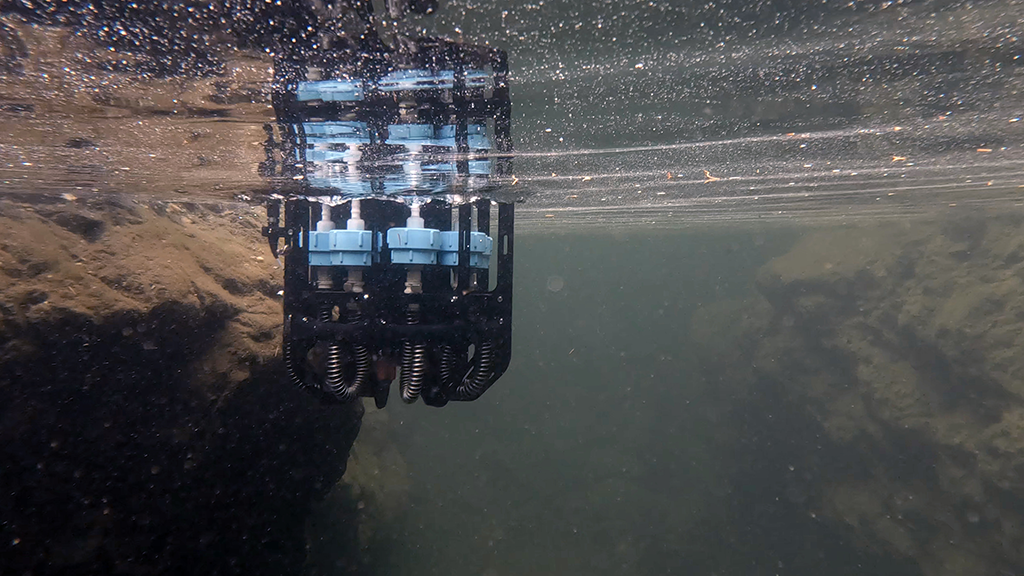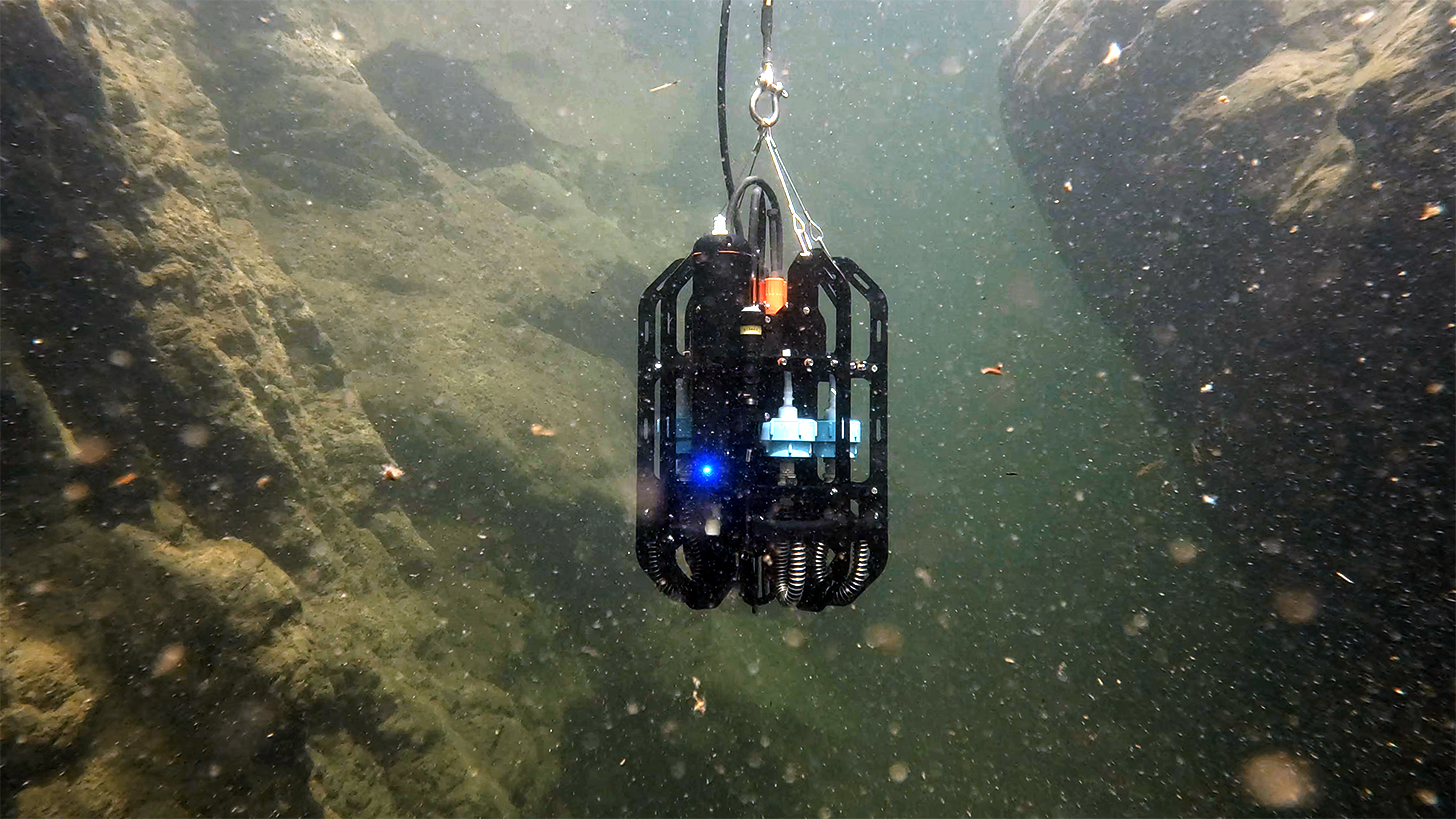eDNA's Crucial Role In Monitoring Biodiversity Loss
In the face of a pressing climate change and biodiversity loss, environmental DNA (eDNA) is an exciting tool to assess and track biodiversity in our life below water. Unfortunately, current eDNA sampling methods are not fit-for-purpose. They often involve multiple manual steps and expose samples to contamination, compromising the data quality. To protect our planet’s biodiversity, Ocean Diagnostics offers a suite of technology to help monitor biodiversity in freshwater and marine areas, marine protected areas (MPAs) and UNESCO World Heritage sites.
Ocean Diagnostics’ innovative eDNA sampling technologies collect eDNA in-situ to improve sampling efficiency and reduce contamination. By leveraging eDNA technology, researchers gain deeper insights into marine biodiversity, which helps inform evidence-based management decisions to better monitor and protect these habitats.

Aquatic animals continuously release DNA into their surroundings. Marine organisms shed scales, skin and release waste and bodily fluids that remain in the water for a short period of time on the order of 1-2 days. Prey DNA can even be found in predators' stomachs to identify what they ate. Collecting this eDNA and analyzing it helps researchers understand what animals are in the target area, without having to disturb or collect animals in the process. It can identify invasive species, endangered species and more.
Water samples containing eDNA are typically collected and filtered. Researchers will extract DNA from the material remaining on the filter, amplify it and then analyze it to match the genetic material to a reference database of known animal species. The full process is called metabarcoding or metagenomics depending on the method used.
Due to the inherent challenges of collecting eDNA in water and the rapid degradation of the genetic material in the environment, collected eDNA fragments are often short and degraded. To achieve reliable species detection, it is crucial to collect eDNA using methods that maximize eDNA recovery.

Ocean Diagnostics has developed eDNA sampling devices for the efficient filtration and eDNA collection directly within the water column. These devices use precise flow rates to optimize eDNA recovery. Among these innovations is Ascension, a portable depth sampler equipped with seven filter channels and a specially designed filtration system capable of collecting eDNA down to 400 meters deep.
Ascension comes with a fully integrated Conductivity, Temperature, Depth (CTD) sensor, originally developed for NASA by Star-Oddi. Ascension captures conductivity, salinity, temperature and depth while simultaneously filtering water and eliminates the need for an additional CTD instrument. It ensures precise water parameter recordings at each sampling session.
The twenty-two-pound instrument maintains a lightweight and portable design that allows manual operation from vessels of any size. Alternatively, the instrument can be securely fixed to a platform, buoy or dock, enabling automated eDNA capture. Today, Ascension instruments are monitoring eDNA in marine protected areas in both the Pacific and Atlantic oceans.

Ocean Diagnostics has two additional eDNA surface samplers. The Basic Two-Channel eDNA Sampler uses two small but powerful pumps to draw surface water through filters, capturing the eDNA for analysis. It comes in a small, portable case with a rechargeable battery and can be customized for different sampling requirements. This versatile device is perfect for remote areas where scientists want to monitor ecosystems, aquatic life and invasive species.
The Advanced Two-Channel eDNA Sampler is an upgraded version designed to filter water for eDNA while simultaneously capturing real-time flow rates, volume, geo-location and satellite UTC time. This advancement enables precise parameter collection to complement eDNA samples.
.png?width=2048&height=1366&name=eDNA%20Surface%20Samplers%20(1).png)
The Scientific Services team provides consultancy and expertise to guide pilot studies, regular monitoring or baseline data collection. They collaborate with various organizations to ensure that both technology and methods align effectively with the research goals.
Ocean Diagnostics' cutting-edge eDNA sampling technologies can help to safeguard biodiversity in oceans, rivers and lakes by efficiently capturing eDNA. With more accessible data, scientists, government agencies and conservation organizations can better monitor marine protected areas where comprehensive research plays a vital role in informed conservation efforts.
As life below water faces unprecedented challenges from climate change, invasive species, pollution and habitat loss due to human activities, leveraging eDNA technology becomes imperative for understanding and mitigating biodiversity loss. With expert support, proper technology and consistent monitoring programs in place, marine environments can recover from the biodiversity crisis.
Ocean Diagnostics Inc (ODI) is a Canadian environmental impact company that develops cutting-edge technology for researchers and community scientists to collect the microplastic and environmental DNA (eDNA) data needed to fill knowledge gaps and support informed decision making to protect our oceans.
